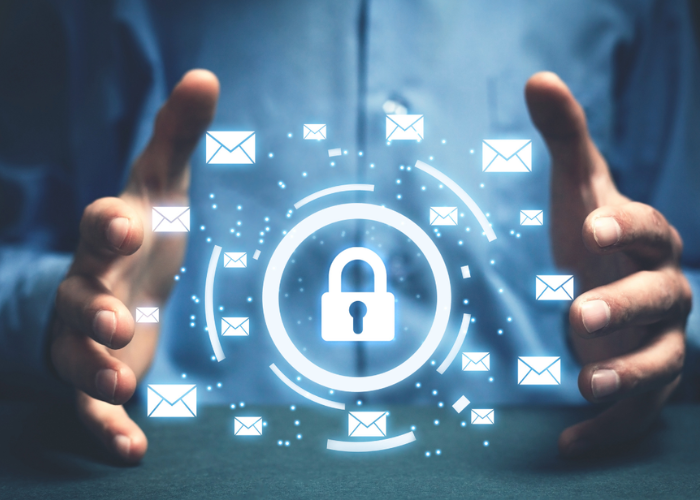It is of the utmost importance in the area of healthcare to maintain the confidentiality of patient information HIPAA Compliant Email, particularly information that might do the patient harm. The Health Insurance Portability and Accountability Act, more often referred to as HIPAA Compliant Email, is a statute that was put into law in order to provide national principles for maintaining the confidentiality of information of such a sensitive nature. As more advanced technologies have been available, there has been a rise in the need for email that is compliant with HIPAA requirements. This is necessary to ensure that the transmission of patient information is carried out in a secure manner. In this guest post, we will go over what email is, why it is important, and how to make sure that the email operations of your firm are in compliance with HIPAA Compliant Email.
What is HIPAA Compliant Email?
Sensitive patient information may be safely communicated and received online using an email that conforms with HIPAA requirements. This protects both the sender and the recipient of the information HIPAA Compliant Email. In order for an email to be considered HIPAA compliant, it has to satisfy all of the specific security and privacy standards that are established in the rules governing HIPAA. In order to meet these standards, the email must be encoded, the sender and the recipient must be authenticated in a safe manner, and the communication must be stored in a secure place.
Why is HIPAA Compliant Email Important?
It is possible that a variety of reasons, including the following, HIPAA Compliant Email contribute to the significance of maintaining HIPAA compliance in one’s outgoing and incoming email communications in the healthcare industry:
1. Protecting Sensitive Information
The most obvious reason for sending the email is to prevent unauthorized access to crucial patient information as well as the theft of such information. This is the objective of sending the email. This information is confidential, and the only people who should be able to access it are those who are allowed to do so, such as medical professionals, insurance companies, and patients themselves. It is not allowed to be disclosed due to legal restrictions.
2. Avoiding Penalties for Non-Compliance
If you violate the Health Insurance Portability and Accountability Act (HIPAA), HIPAA Compliant Email you might face fines of up to $1.5 million per year and individual fines ranging anywhere from $100 to $50,000 per violation. Healthcare providers that ensure that their email operations are HIPAA compliant have a better chance of avoiding these fines and continuing to comply with HIPAA requirements.
3. Maintaining Patient Trust
Patients trust that the healthcare professionals who care for them will keep the privacy of any sensitive health information they share with them. This email helps to ensure that the agreed level of trust is maintained by preventing unauthorized access to patient information and so preventing any breach of confidentiality.
Ensuring HIPAA Compliant Email
The following are some steps that should be taken:
1. Use Encryption
Encryption is the process of converting plain text into a coded form that can only be deciphered by those persons who are in possession of the key matching the encrypted information HIPAA Compliant Email. Encrypting sensitive patient information helps prevent it from being stolen or seen by third parties who are not authorized to do so.
2. Verify the Identity of the Sender and Recipient
Before sending any email that complies with HIPAA, it is absolutely necessary to do an identity check on both the sender and the recipient of the communication. This increases the likelihood that the email will not be viewed by anyone who is not authorized to do so.
3. Use Secure Email Services
Encryption is used during the sending of emails when utilizing secure email services, and these services also enable safe storage for correspondence. These services were built specifically with HIPAA Compliant Email providers in mind, and they satisfy all of the HIPAA regulations’ security and privacy criteria. HIPAA stands for the Health Insurance Portability and Accountability Act.
4. Train Employees on HIPAA Compliant Email
In order to ensure that your organization is in compliance with HIPAA regulations regarding email policies and procedures, employee training is an absolutely necessary component. Employees should be given with training sessions on the HIPAA standards, the relevance of this email, and the proper utilization of secure email platforms.
5. Monitor Email Use
Last but not least, HIPAA Compliant Email healthcare companies should monitor their employees’ use of secure email services to ensure that their whole workforce is adhering to industry standards while making use of these services. Important patient information is protected from unauthorized access at all times thanks to this practice, which is a significant advantage.
Conclusion
Email services that are HIPAA Compliant Email are an absolute need for healthcare professionals in order to protect sensitive patient information, prevent potentially significant penalties for non-compliance, and maintain the trust of their patients. Encryption, authenticating the identities of the sender and recipient, using secure email services, training people, and monitoring email traffic is some of the ways in which healthcare providers may ensure that their email operations are in compliance with HIPAA Compliant Email.





